Connecting the UCL cancer research community and showcasing its transformative work.
The 2023 UCL Cancer Symposium attracted over 200 attendees from across UCL and beyond, with many more watching online around the world. The flagship cancer event in the UCL Health calendar, the symposium demonstrated how UCL is rethinking cancer through groundbreaking research and strengthening the cancer research community. Sessions explored the leading cancer research across the university, including how we are harnessing our biology, engineering better outcomes, and leaving no-one behind in our fight against cancer. The line-up of 20 speakers represented excellence across an impressive range of disciplines at all stages of the career pathway, demonstrating the breadth of cancer research at UCL. The symposium was a clear demonstration of why UCL is a global cancer research powerhouse, and how it is positioned to continue to make major breakthroughs in the future.
Session 1 - Major Study Updates
The opening session featured five flagship clinical research programmes, funded through grants worth well over £50 million to UCL that are already benefiting cancer patients and changing clinical practice.
Professor Mark Emberton
Dean, Faculty of Medical Sciences
Re-IMAGINE – the gateway to a biopsy-free future?
Mark Emberton is Professor of Interventional Oncology within the Division of Surgery and Dean of the Faculty of Medical Science at University College London. He is clinically active and holds the position of Honorary Consultant Urologist at University College London Hospitals NHS Trust where he works as a specialist in prostate cancer.
Professor Gert Attard
Chair of Medical Oncology/Honorary Consultant, UCL Cancer Institute, Faculty of Medical Sciences
Optimising first-line systemic treatment for advanced prostate cancer
Gert Attard is a John Black Charitable Foundation Endowed Chair in Urological Cancer Research at University College London. He is Team Leader of the Treatment Resistance Group at the UCL Cancer Institute and a medical oncology consultant treating advanced prostate cancer at UCLH.
Professor Maria Hawkins
Professor of Radiation Oncology and Honorary Consultant, Faculty of Engineering Science
Protons - opportunities to develop new treatment
Professor Hawkins is a clinician scientist in precision radiotherapy committed to improving outcomes through research investigating effects in normal tissue and novel agents - novel radiation combinations. She is now the clinical director of CRUK City of London RADNET Radiation Research Unit, and director of translational research at UCL/UCLH and proton centre.
Professor Shonit Punwani
Professor of Magnetic Resonance and Cancer Imaging (UCL), Honorary Consultant Radiologist (UCLH) and Chair of the National Cancer Imaging Translational Accelerator
National Cancer Imaging Translational Accelerator (NCITA)
Shonit Punwani is Professor of Magnetic Resonance and Cancer Imaging and Consultant Radiologist at UCLH. His medical training, undertaken at UCL, was supplemented with a PhD in MRI Physics. He completed post-graduate training in Medicine at Northwick Park, before training as a radiologist at UCLH. He was awarded a Walport NIHR Clinical Lectureship, before being appointed as a Senior Lecturer at UCL and Consultant Radiologist at UCLH.
Dr Ariana Huebner
Cancer Genome Evolution Research Group, Cancer Research UK Lung Cancer Centre of Excellence, UCL Cancer Institute, National Cancer Imaging Translational Accelerator (NCITA)
TRACERx understanding the past to predict the future
Ariana Huebner recently completed her PhD on characterizing cancer genome evolution in metastasis with Dr. Nicholas McGranahan and Prof. Charles Swanton at UCL and the Francis Crick Institute. She is currently continuing as a postdoctoral research fellow with Dr. Nicholas McGranahan. Before starting her PhD, she also studied Mathematics at the University of Freiburg, Germany and holds a master’s degree from UCL. Dr Heubner’s research has focused on investigating subclonal selection and its impact on the metastatic process as well as understanding how and when cancers metastasize.
Rethinking Cancer
The Rethinking Cancer talk presented by Professor Tariq Enver outlined UCL’s ‘Rethinking Cancer’ themes, outlining UCL’s current cancer research portfolio and future ambitions. The talk explored how UCL is discovering new ways to harness our own biology to our advantage, engineer better outcomes with technological innovation, and leave no-one behind to ensure the greatest good for the greatest number of people.
Professor Tariq Enver
Director, UCL Cancer Institute, Cancer Lead, UCLP AHSC, Lead, CRUK City of London Centre
Communications framework for cancer at UCL
Tariq Enver is Professor of Stem Cell Biology at the UCL Cancer Institute. Professor Enver joined UCL in 2010 as Head of the Department of Cancer Biology and subsequently was appointed Vice Dean Research of the Faculty of Medical Sciences. Professor Enver became the Director of UCL’s Cancer Institute in 2013 and is also co-Director of the CRUK UCL Centre, a focal point for cancer research at UCL, bringing together researchers and clinicians from UCL and its partner hospital trusts to accelerate cancer research discoveries.
Session 2 - Harnessing Our Biology
The Harnessing Our Biology session featured exciting presentations of the newly funded Cancer Grand Challenges in CAR-T therapy, cachexia and extrachromosomal DNA, building on UCL’s pioneering research in discovery biology, immunology and gene therapy.
Dr Mariam Jamal-Hanjani
Senior Clinical Lecturer and Honorary Consultant in Translational Lung Oncology, Faculty of Medical Sciences
The study of extrachromosomal DNA and cachexia in metastatic disease
Mariam Jamal-Hanjani is Senior Clinical Lecturer at UCL and having been awarded a Cancer Research UK Fellowship in 2012 to complete her PhD studies in Cancer Genetics for which she was awarded the McElwain and Sylvia Lawler Scientific Prizes. In 2014 with Charles Swanton, she set up the UK-wide TRACERx lung cancer evolution study, and in 2016 she was awarded an NIHR Clinical Lectureship during which she established the UK-wide PEACE research autopsy programme. In 2021 she was awarded a CRUK Career Establishment Award to study the biological processes driving death in lung cancer. She is a co-investigator on two Cancer Grand Challenges focussed on the study of extrachromosomal DNA and cachexia, and her lab is focussed on studying tumour evolution and immune escape in the metastatic setting, and catabolic mediators of cancer cachexia.
Dr Karin Straathof
Associate Professor Tumour Immunology, UCL Cancer Institute & Honorary Consultant Paediatric Oncology, Great Ormond Street Hospital
Next Generation engineered T cells for childhood solid tumours
Karin Straathof graduated with both a medical degree and Biomedical Sciences degree from Leiden University, the Netherlands. Her PhD at Baylor College of Medicine (Houston, USA) was on adoptive T cell immunotherapy for Epstein-Barr virus associated malignancies. She trained in paediatrics and subsequent subspecialty paediatric oncology in London and is now an honorary consultant paediatric oncologist at Great Ormond Street Hospital.
Early Career Researchers
The best early career poster submissions were invited to present the research in their posters to the symposium, the three researchers were Andrés Garcia-Sampedro, Daniel Jacobson, and Snigdha Sen. Prizes were also awarded to Andrés Garcia-Sampedro for giving the best talk, to Daniel Jacobson for best poster, and to Lucie Gourmet for runner up in the best poster competition. The early career session demonstrated the UCL Cancer Domain's continuing commitment to provide opportunities for researchers at the start of their career, and showcasing their work alongside senior researchers.
Andrés Garcia-Sampedro
Doctoral Student, Institute for Liver & Digestive Health, UCL
Immuno-oncology biomarkers for improved diagnosis of cholangiocarcinoma in primary sclerosing cholangitis: insights from the inflammatory and fibrotic tumour microenvironment.
Andrés Garcia-Sampedro is a PhD student at University College London (UCL) who holds a BSc (Honours) in Biotechnology from the Polytechnic University of Madrid (Spain) and an MSc in Nanotechnology & Regenerative Medicine from UCL.
Snigdha Sen
Doctoral Student, Centre for Medical Imaging, Department of Computer Science
Non-invasive Microstructural Parameter Estimation with Deep Learning for Prostate Cancer
Snigdha Sen is a 2nd year PhD student at the Centre for Medical Imaging at UCL. She joined UCL via the i4health CDT (EPSRC Centre for Doctoral Training in Intelligent, Integrated Imaging in Healthcare) in 2020. As a part of the CDT, she completed an MRes in Medical Imaging, before beginning her PhD work, supervised by Dr. Laura Panagiotaki. Prior to this, she received an MPhys degree in Physics with Theoretical Physics from Imperial College London.
Daniel Jacobson
Department of Pathology, UCL Cancer Institute
Modelling the interactions between DNA repair and inflammation offers new insight into breast cancer treatment
Daniel Jacobson is a final-year PhD student in computational cancer genetics based jointly between UCL Genetics Institute and the UCL Cancer Institute. He joined the UCL-Birkbeck MRC Doctoral Training Partnership in 2019 after obtaining his MSci in Natural Sciences from UCL, specialising in molecular biology and statistics. In 2020 he joined the laboratories of Dr Maria Secrier and Professor Jasmin Fisher. Daniel’s research focuses on characterising DNA repair deficiencies in breast cancer, and the therapeutic potential presented by how this alters modulation with the tumour microenvironment.
Session 3 - Engineering Better Outcomes
The Engineering Better Outcomes session focused on computational cancer, demonstrating powerful uses of in silico modelling and data processing to understand disease progression, learn from patient datasets, and improve the clinical pathway, in a theme that embraces mathematics, computation and physical sciences.
Dr Benjamin Hall
Royal Society Research Fellow, Department of Medical Physics and Biomedical Engineering, Faculty of Engineering Science
Evolutionary ratchets and cancer fate selection throughout stages of
carcinogenesis
Ben Hall is a computational biologist and Royal Society Research Fellow in the department of medical physics and biomedical engineering, at UCL. Dr Hall leads a program on “Modelling the decision processes of cancer”, where his team develop computational models of the aging tissue and carcinogenesis. He holds a Royal Society University Research Fellowship, and work in his group is funded by the MRC, Microsoft Research, and the Royal Society.
Dr Catarina Veiga
Senior Royal Academy of Engineering Research Fellow, Centre for Medical Image Computing, Department of Medical Physics & Biomedical Engineering, Faculty of Engineering Science, UCL
Medical imaging and modelling in radiotherapy planning, verification and follow-up
In 2018 Dr Veiga was awarded a prestigious 5-year Royal Academy of Engineering Fellowship. This tenure-track fellowship has enabled her to start building an inter-disciplinary research team with the overarching aim of reducing the incidence of harmful in later life associated with radiotherapy during childhood.
Dr Kevin Litchfield
Principal Research Fellow, Faculty of Medical Sciences, UCL
Understanding the anti-tumour immune response through reverse translation
Kevin Litchfield is a group leader at the UCL Cancer Institute, having trained in mathematics and bioinformatics, and worked in the pharmaceutical industry at Novartis Oncology. Dr Litchfield completed a PhD in cancer bioinformatics and completed his postdoctoral training with Professor Charles Swanton at the Francis Crick Institute. His research is currently specialising in immune-oncology bioinformatics, biomarker development and drug target identification.
Dr Maria Secrier
Lecturer in Computational Biology, Faculty of Life Sciences
Genomic and digital pathology approaches to elucidate G0 arrest states in cancer
At the UCL Genetics Institute, Maria Secrier leads an interdisciplinary research group in Computational Cancer Biology, which focuses on understanding cancer evolution in its environmental niche by developing machine learning and data integration methods for complex multi-omics and imaging datasets. A primary interest in the group is how cell fate and plasticity shapes tumour progression and response to treatment.
Dr Adam Levine
NIHR Academic Clinical Lecturer in Histopathology, UCL Cancer Institute and UCLH Department of Cellular Pathology
Natural language processing of histopathology reports with a focus on immunohistochemistry
Adam Levine is an NIHR Academic Clinical Lecturer in Histopathology in the Research Department of Pathology at UCL. Dr Levine graduated from UCL Medical School in 2016 having completed the UCL MBPhD Programme. As an undergraduate student, he was awarded the UCL Faculty of Life Sciences Medal and Prize. His PhD research focussed on the genetics of inflammatory bowel disease in multiplex families for which he was awarded the Cordwainers’ Prize for Best MB/PhD Thesis.
Session 4 - Leaving no one Behind
The Leaving no-one Behind session gave a wider perspective on social determinants of health and outcomes, pollution and lung cancer, disease surveillance, and the use of multiple disciplines to understand tissue barriers to drug delivery, building on UCL’s philosophy of doing the greatest good for the greatest number of people.
Professor Peter Goldblatt
Senior Advisor, UCL Institute of Health Equity
Social determinants of health and health inequalities
Peter Goldblatt is a senior advisor at the Institute of Health Equity a statistical advisor to the UK Department of Health and Social Care and an expert advisor to WHO European Office. His main activities are in the field of measurement and monitoring and contributing to European and other international project to review and monitor the social determinants of health. Professor Goldblatt was previously the Chief Medical Statistician at the UK Office for National Statistics (ONS). He was seconded from ONS to UCL for the duration of the Strategic Review of Health Inequalities in England post2010 (the Marmot Review). Following this review, he co-ordinated reviews of health inequalities in the WHO European Region, for WHO, and a review of health inequalities in European, for the European Commission (EC).
Dr William Hill
Postdoctoral Fellow, Cancer Evolution and Genome Instability lab, The Francis Crick Institute
Lung Cancer Promotion by Air Pollutants
William Hill received his PhD at Cardiff University studying mouse models of early pancreatic cancer identifying how the body protects against cancer. Dr Hill then joined Professor Charles Swanton’s lab in Autumn 2019 where his research focuses on early tumourigenesis in lung cancer and how environmental risk factors such as air pollution drive disease, with a particular focus on lung cancer in people who have never smoked.
Professor Rachel McKendry
The London Centre for Nanotechnology and Division of Medicine, UCL and Director of the i-sense EPSRC IRC in Early Warning for Infectious Diseases and AMR
Harnessing advanced materials and machine learning for early disease detection
Rachel McKendry is Professor of Biomedical Nanoscience and holds a joint position between the London Centre for Nanotechnology and Division of Medicine, University College London. She is Director of the £11M i-sense EPSRC IRC, a large interdisciplinary research collaboration in Early Warning Sensing Systems for Infectious Diseases. Professor McKendry’s research lies at the cutting edge of nanotechnology, telecommunication, big data, infectious diseases and public health.
Professor Simon Walker-Samuel
Vice Dean (Research), Faculty of Medical Sciences and Co-Director, Centre for Computational Medicine
Combining mathematical modelling, imaging and machine learning to better understand barriers to successful cancer therapy
Simon Walker-Samuel is Professor of Biophysics and Imaging at UCL in the Division of Medicine. Professor Walker-Samuel studied Physics at Surrey University and went on to complete a PhD in Biophysics at the Institute of Cancer Research in 2007. In 2013 he was awarded a Wellcome Trust Senior Research Fellowship. Professor Walker-Samuel’s research focus is the characterisation of the tumour microenvironment, principally using a range of biomedical imaging techniques.
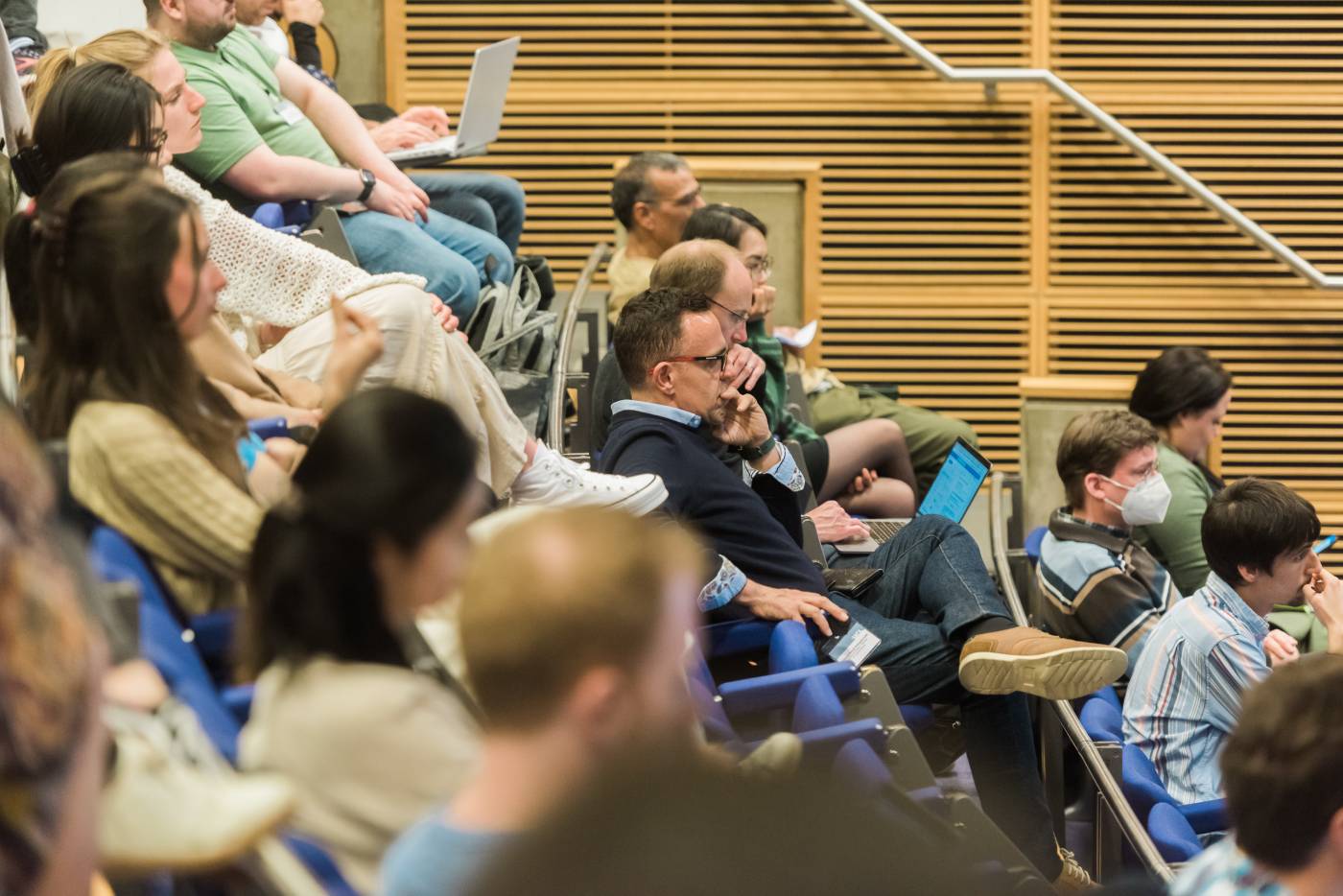
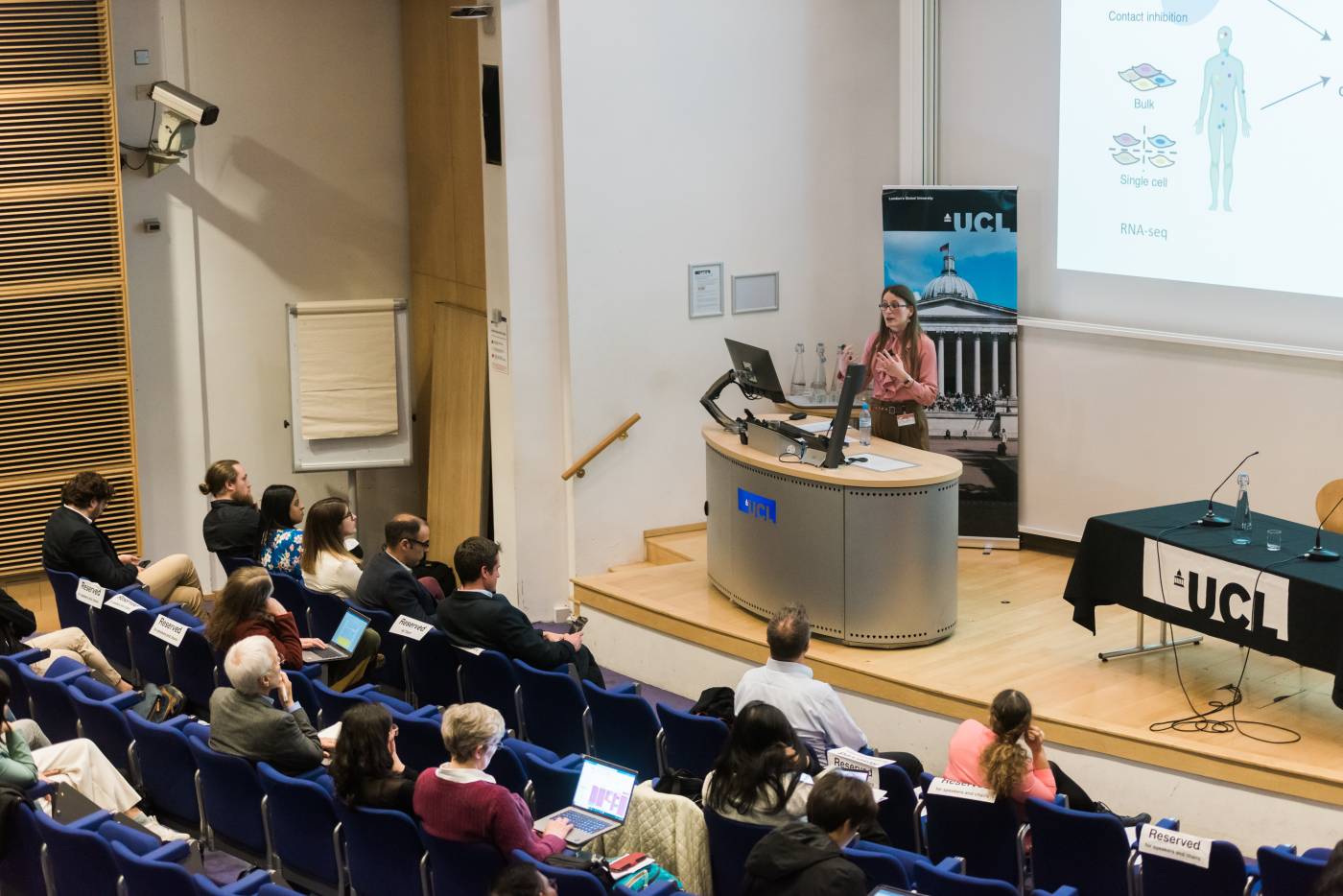
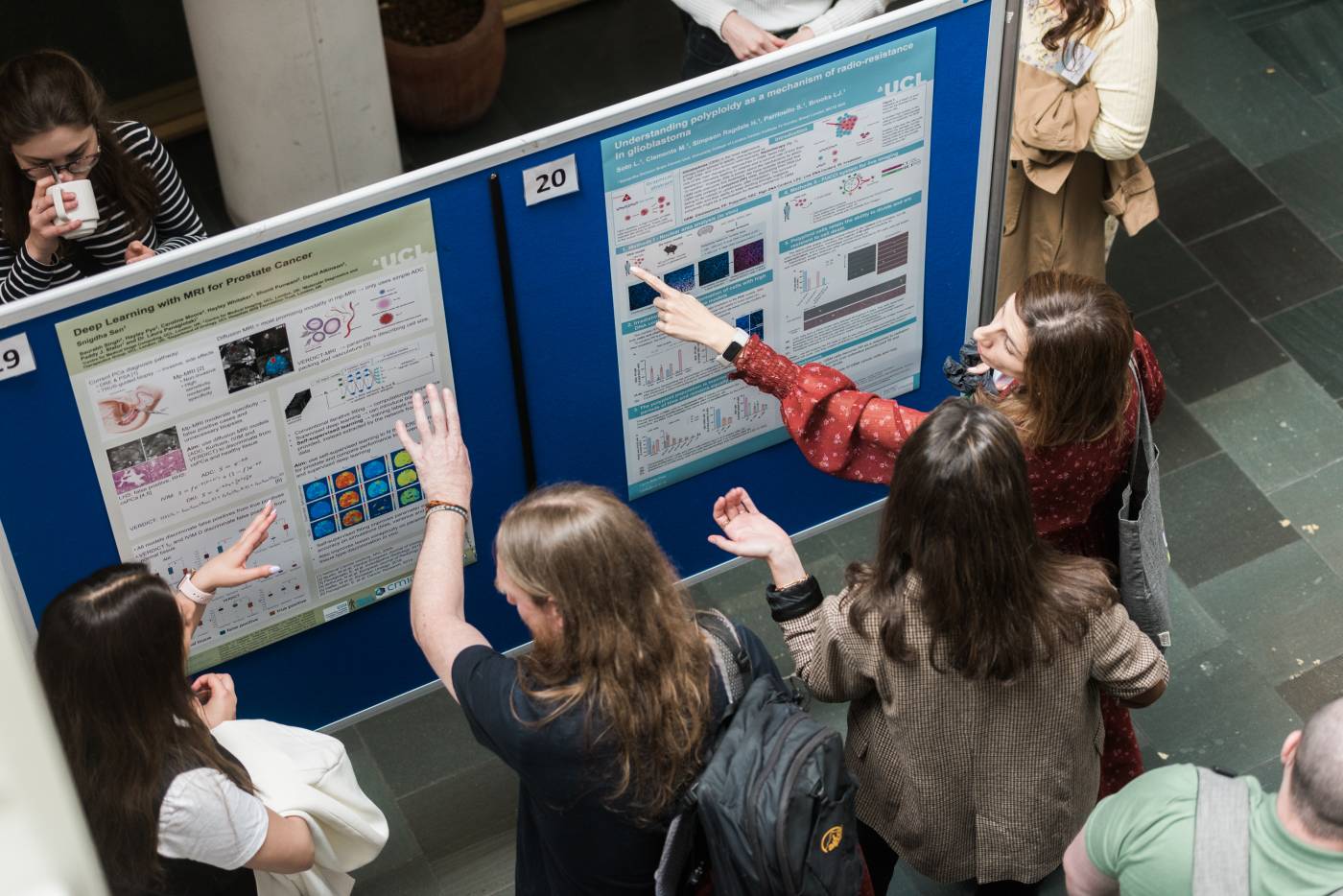
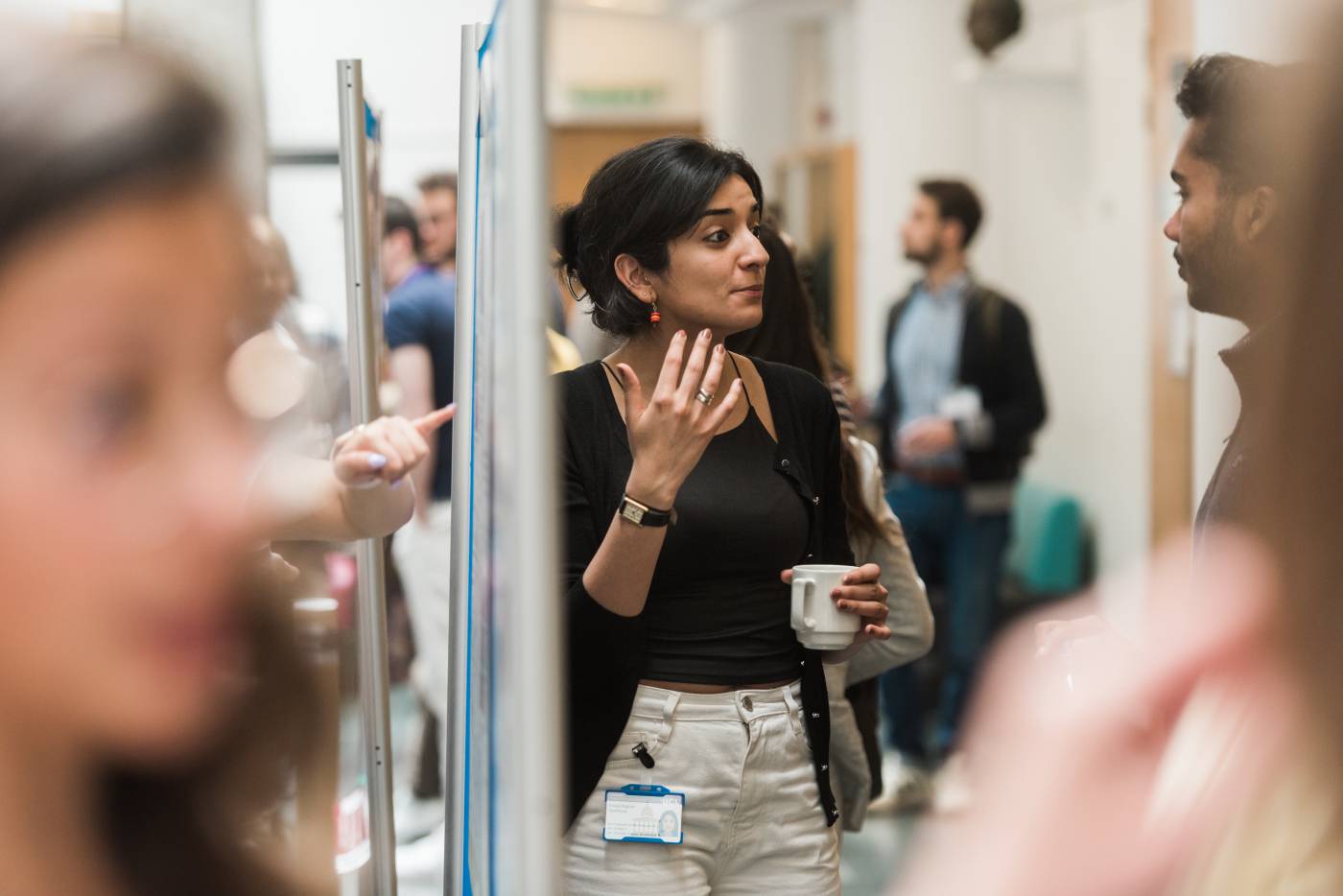
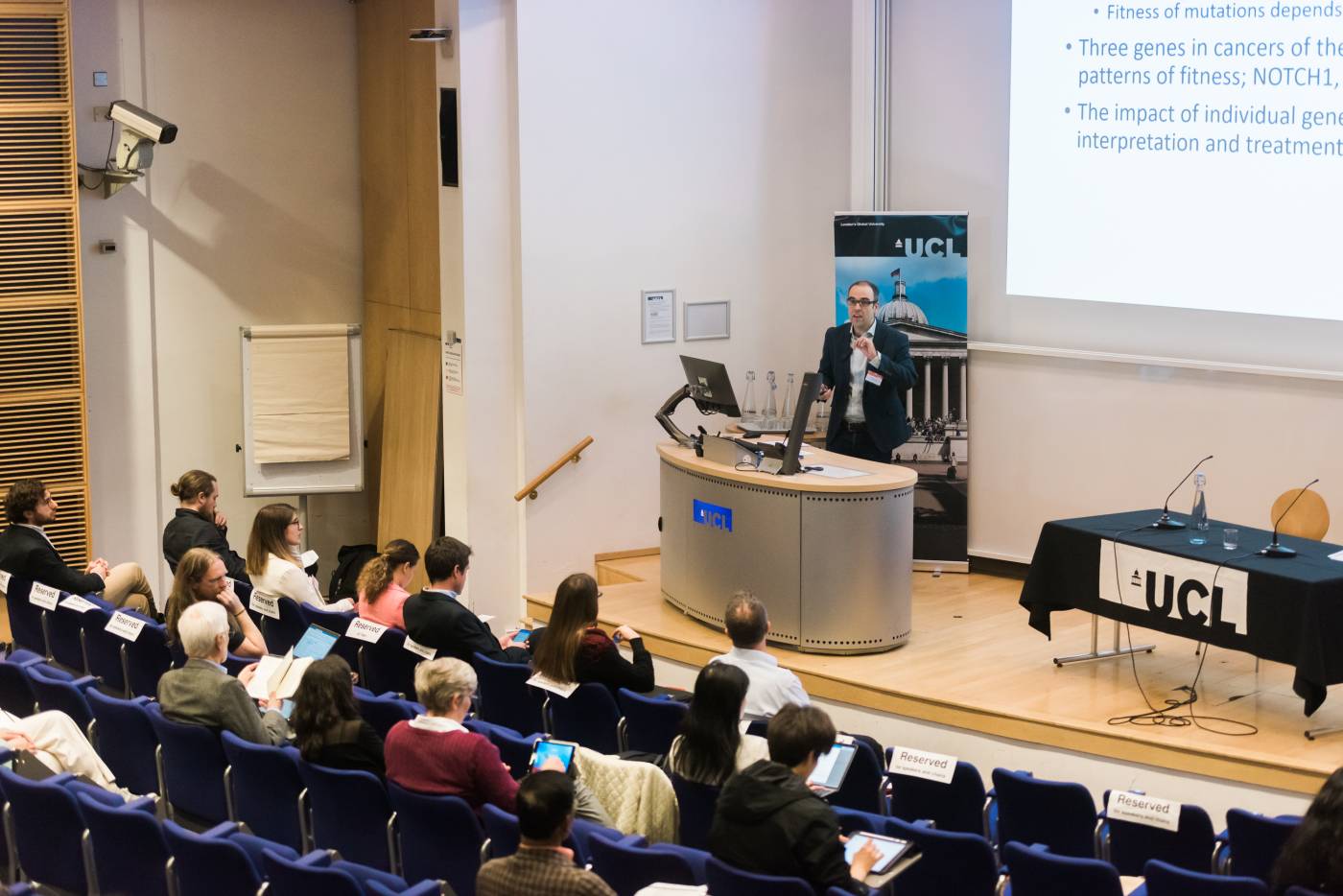
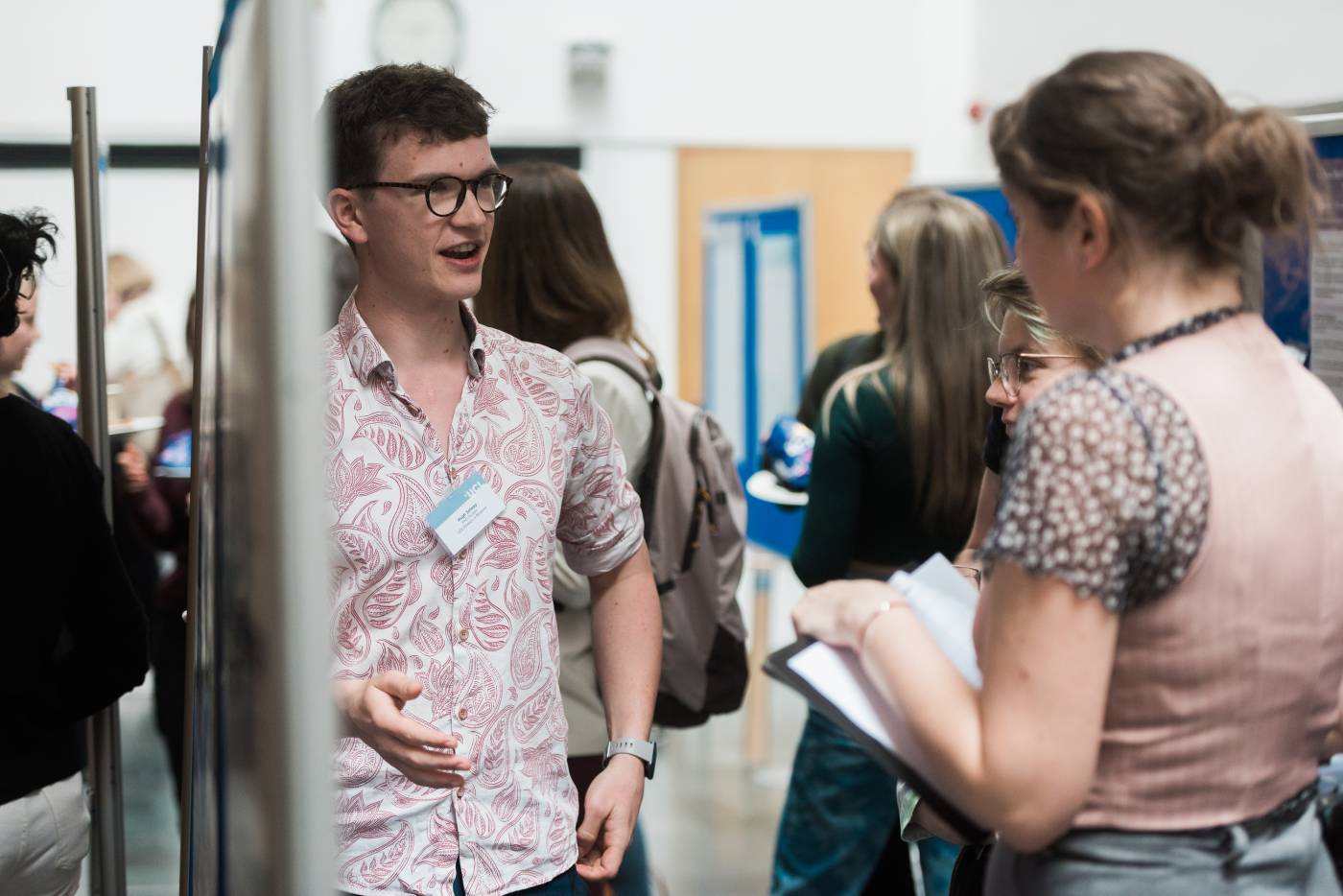
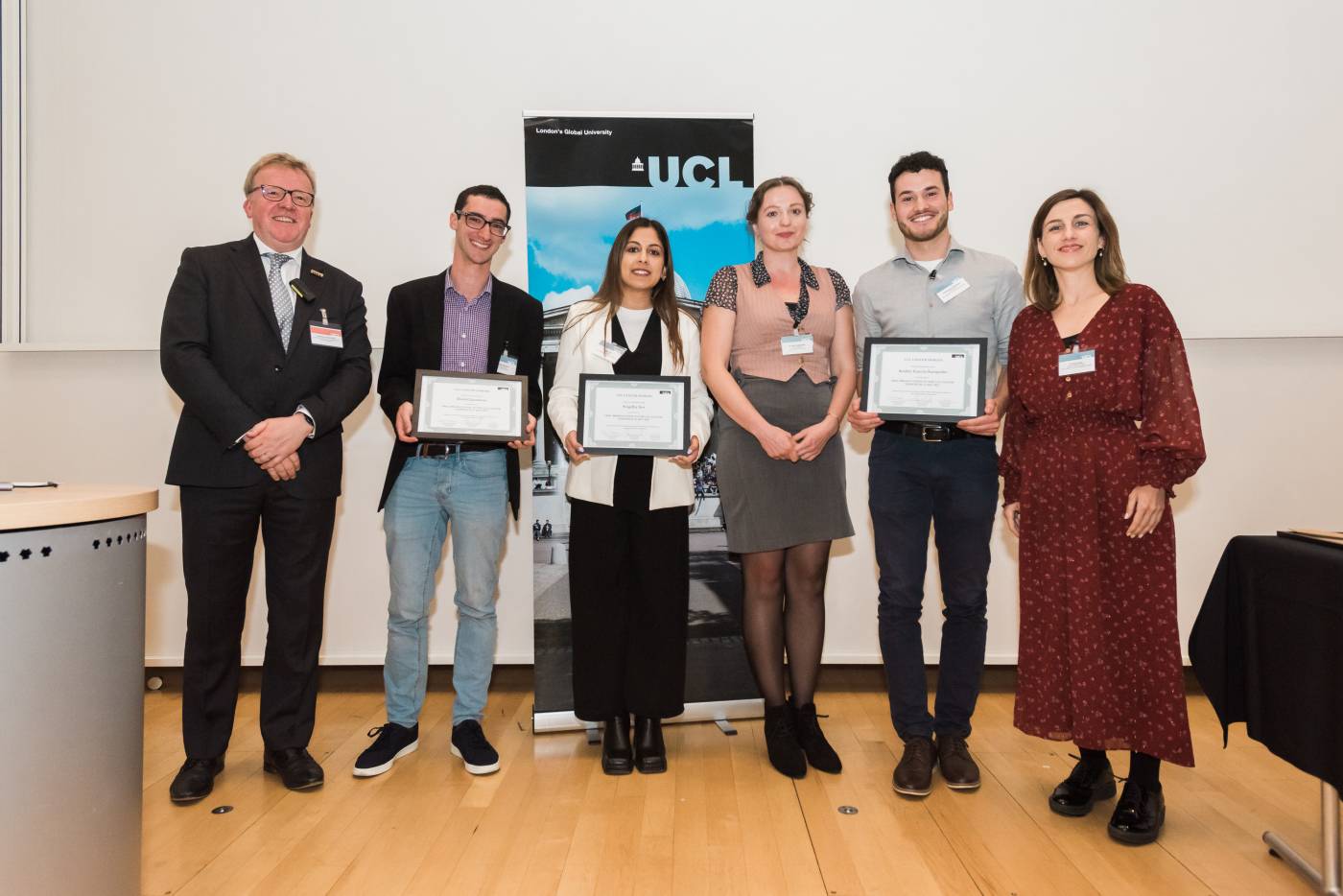
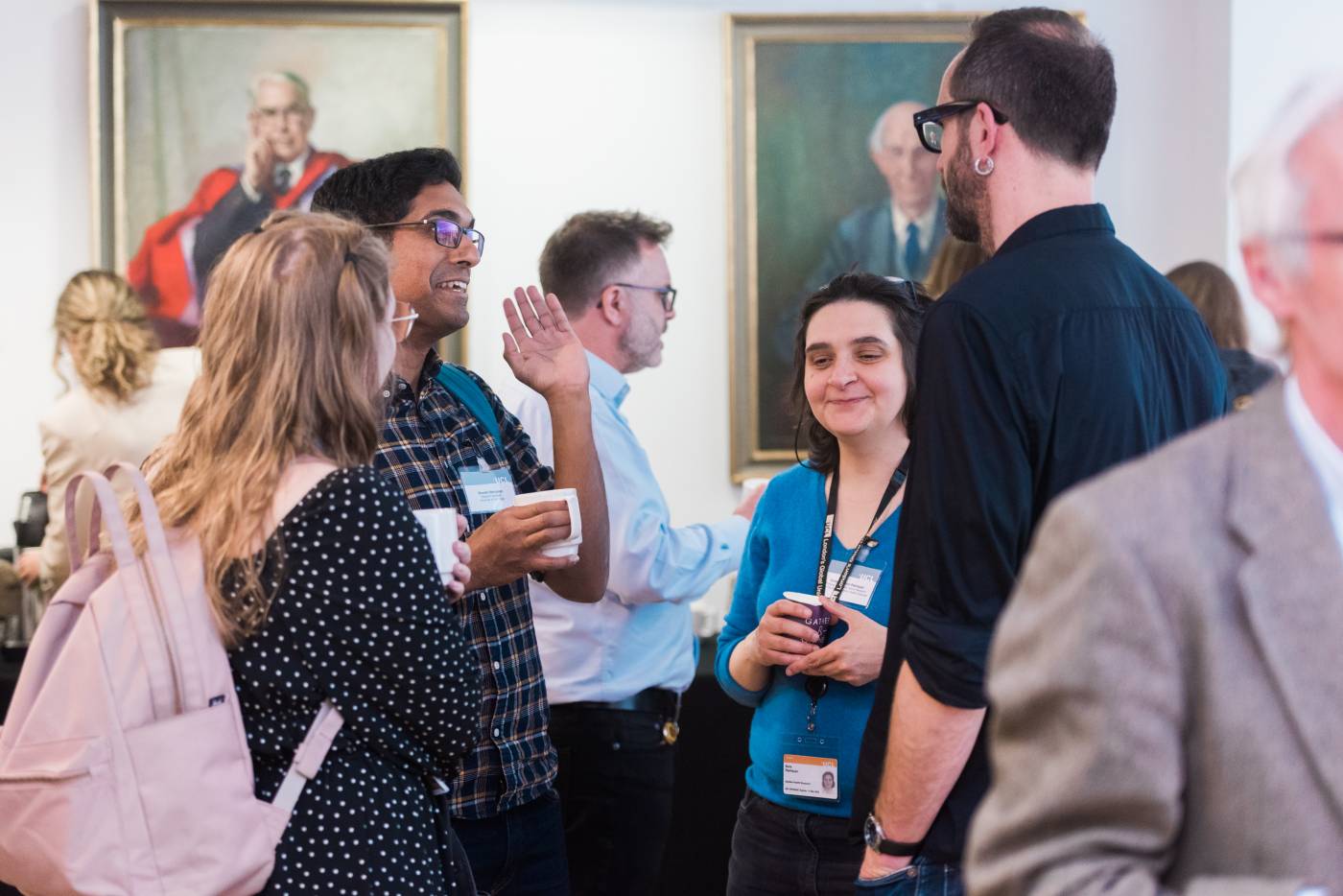

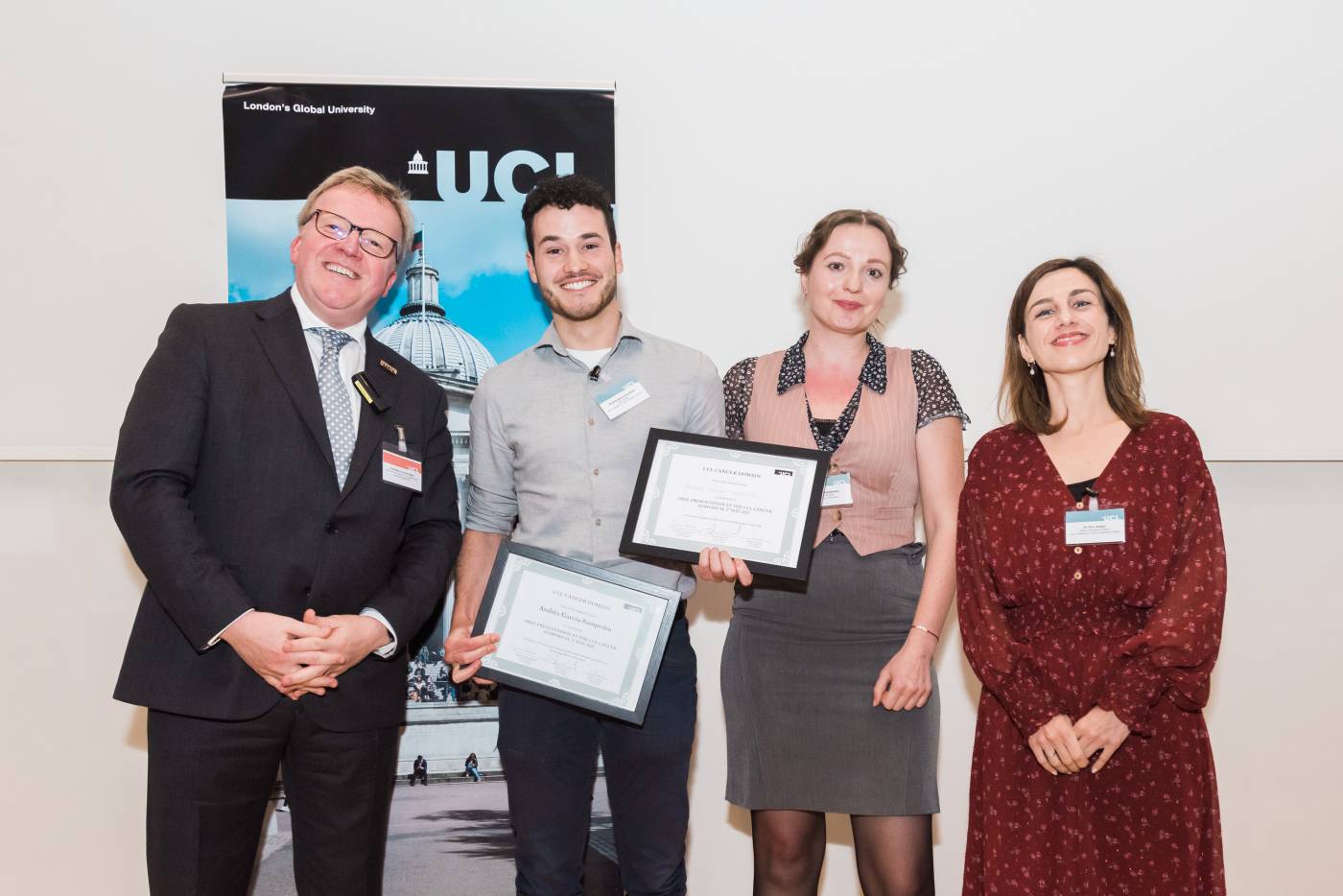
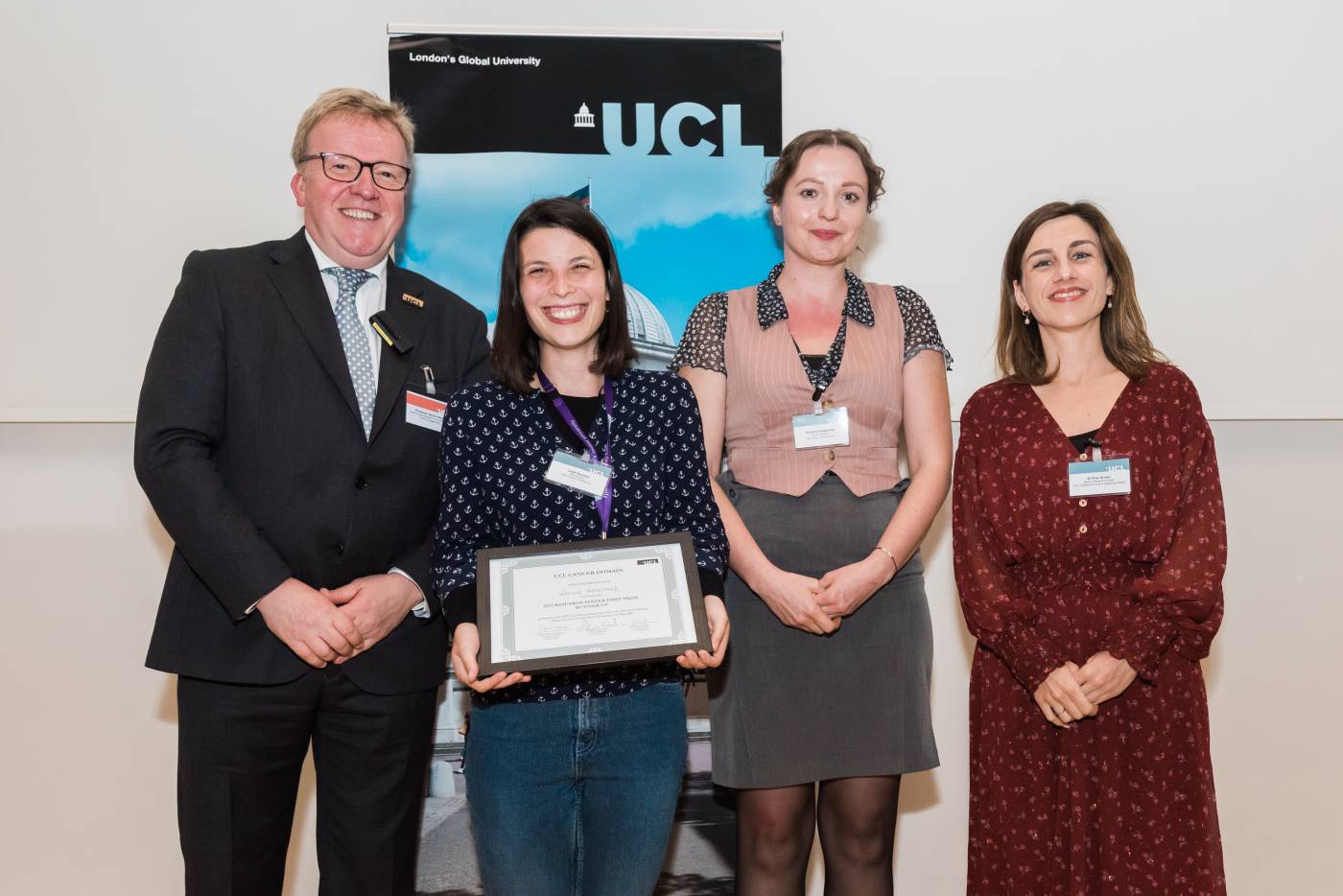
 Close
Close

